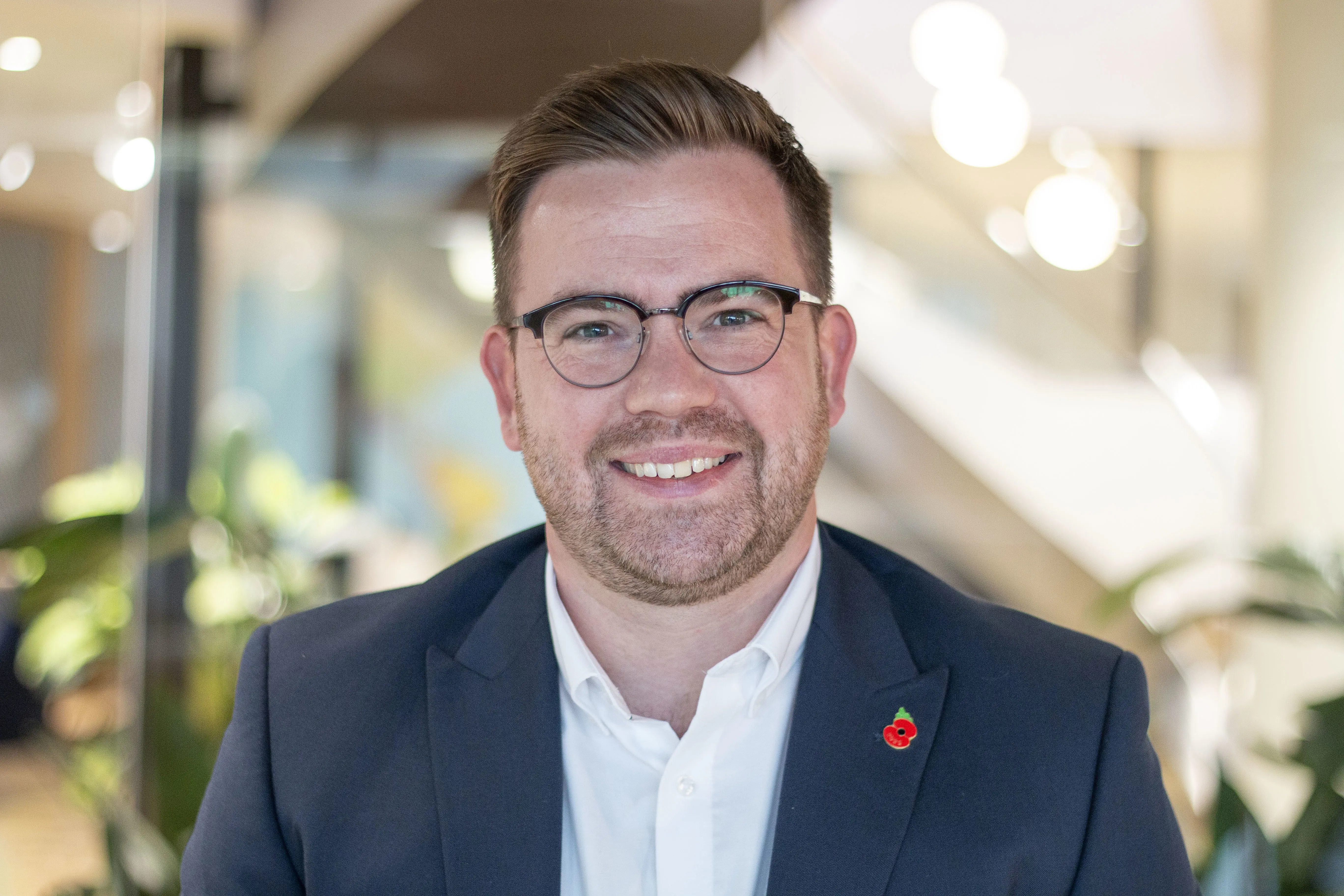The environment that leadership creates is a key determinant of the quality of public services in government. According to the Organisation for Economic Co-operation and Development (OECD), leaders are “at the heart of government effectiveness” as they must make space for innovation while managing risk and being accountable for results. However, the most recent civil service people survey has the satisfaction score for leadership and managing change as one of the lowest scores (54%).
Leaders set the agenda of their organisations, put a specific focus on organisational priorities, and provide oversight to match organisational resources to demand pressures.
The scale and importance of their roles is why, the OECD highlights, leaders often receive specific training as a group in governments around the world. However, often this training fails to translate into operational impact and a tangible shift in how leaders lead. When starting out with new clients we often hear “leadership just don’t listen to us”, or “we have raised this already and it goes nowhere”.
This is why Baringa’s Team-by-Team (TbT) approach has a specific focus on how to create better operational leaders in government. Operational interventions need both the front-line teams and leadership brought into the new way of working to drive the change. Otherwise, teams are working within the same enduring constraints and thinking set up by their leadership and do not have the opportunity to drive real change. Leader’s cast a strong shadow in any organisation – scepticism, change resistance and siloed mentality, flow easily down through the organisation.
Team-by-Team equips teams with a clear sense of purpose, ownership of their performance and most importantly the tools and mindset to challenge the norms, problem solve and find the best way to deliver on their purpose. It is critical that leaders can respond in the right way as this evolution happens in their teams.
Baringa’s Leadership Programme runs alongside the Team-by-Team intervention so that leaders can challenge their own thinking and determine what the new ways of working mean for their role. Leaders receive insight to define their role in helping organisations achieve their purpose, with training on the principles, methods and approaches that they can use to inspire and motivate their teams.
"It was fantastic, helped with my own development (as a leader) and opportunity to work with my team and give them the coaching."
Casework Team Leader, Public Service Delivery Department
This article focuses on three key elements of Baringa’s Leadership Programme.
1. Embrace leadership thinking
Controls, constraints, and restrictions in organisations are often there for a reason, but they can also impede the creativity, passion and initiative of teams. Too often these constraints are ultimately down to the thinking of leaders. Without being open for challenge to their thinking, leaders will prevent the opportunity for change to happen.
We help leaders learn how to understand the system they work in to continually challenge their thinking and understand the impact of regulations to make sure the rules public servants have to follow are proportionate and navigable, so that teams can be at their most effective.
2. Empower staff to make decisions
It is important to define empowerment in the specific context you are operating in, so teams are clear where their boundaries of control and influence lie. More broadly, empowerment is about equipping teams with the skills and tools they need to do their job effectively and the space to shape and influence the way they work.
With a shift in thinking, leaders can provide greater opportunity for change and to test new ways of working. This in turn creates an opportunity for empowerment, giving more decision-making and control to the teams and letting their passion, creativity and initiative find better ways to deliver public services.
Leaders can no longer be a single point of failure in public sector organisations. Service delivery in government often crosses many teams in a department – and indeed often more than one organisation – so leaders need to ensure that staff are empowered to react at pace to the demands of today.
Baringa coaches leaders to shift their focus from having to be the person with the answers, to being the person who enables the decisions that the people closest to the work are empowered to make.
3. Provide coaching for your team
Empowering team members and giving up control means there is a need to build the competence in teams to succeed in this environment. Leaders need to build this through a coaching style, to create the shift in psychological ownership.
Leaders also need to have both good and bad conversations with their team members. Both conversations need to have the right level of impact and comfort to be effective, and the Team-by-Team approach provides leadership coaching to support leaders to have more regular, meaningful, and confident conversations with their team members, to enable a more empowering environment and create the leaders of the future.
"[The programme] has given me a chance to grow, the chance to understand how the systems work and to shape conversation higher up."
Casework Team Leader, Public Service Delivery Department
The concepts outlined here are straightforward, but the application is the key element. Whilst we often find leaders have been through some form of management training in the past, once they leave the classroom, little tangible change happens as a result. If you are not actively changing how you work and think as a leader, you shouldn’t expect anything around you to change.
Baringa supports leaders putting the theory into practice, through 1:1 coaching, observations, and reflection workshops – we create cohorts of leaders using the existing team structures, bringing them together, to discuss what they have done differently and how their thinking has been impacted. The time investment is critical to really turn the dial at leadership level, but also sends a strong message to the teams that their leaders are also invested in changing how they work and are driving change from the top.
Giving up control to empower teams more is not easy; it can go against the natural behaviours that have built up over years. Leaders often tell us “I am finding it really hard to not get more involved and just let them the team decide, it’s a bit uncomfortable”, but in the same conversation will admit they love seeing the team more energised and motivated.
An example of where we have seen a simple shift in leadership control benefiting the team was with a large government case working function. Historically, leaders created detailed rotas, scheduling each person daily to set activities, and constraining their work flexibility. They realised they needed to shift the focus away from micromanaging team rotas to meeting customer outcomes – They set a clear goal for the team and let the teams work and organize themselves in the way they believed best to achieve that goal. The impact was immediate. Teams felt less constrained, could shift their focus between work at times that worked best for them and no longer had the worry of their cases overdue giving the customer a response sitting there, as they could action them as needed. The team were happier, and the leaders had time back which they could repurpose to activities better aligned to the expectations of their leadership role.
The impact of Team-by-Team leadership
Deploying a Team-by-Team approach across government – and beyond – has helped organisations tackle backlogs, increase case management throughput, and boost employee satisfaction. The leadership programme is critical to this success and unlocking these benefits.
A few recent examples
Baringa's Team-by-Team approach teaches and demonstrates to leaders the principles, methods and approaches that they can use to become more effective, as well as coaching better ways of working. It creates an environment where teams can find better ways to work and are supported by their leaders to test out changes and help drive improved performance.
This leads to more effective and sustainable management, with leaders set up to develop their own leadership style as Baringa’s support is phased out.
To find out more about how Baringa’s Team-by-Team approach can help your team become more productive, please contact Joel Toms.
Our Experts


Related Insights

How can the new Government ensure value for money?
Discover the four ways the Treasury could drive better value for money outcomes
Read more
What will increasing automation mean for civil service leaders of the future?
Matt Jones and his guests explore automation in Government, what automation means for the people who work on operating our public services, and the risks of bringing AI into organisations.
Read more
Five AI pitfalls that governments must avoid to unlock productivity benefits
Discover the five key mistakes organisations make when using AI – and how Government Departments can avoid them.
Read more
Using AI to save hundreds of hours capacity per week for a customer services organisation
How do you improve productivity through purpose-led digital investment? Discover the four steps that enabled our client to find a resolution through purpose-led investment in AI.
Read more